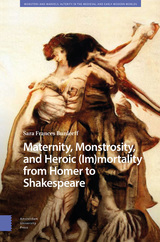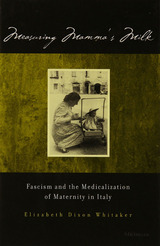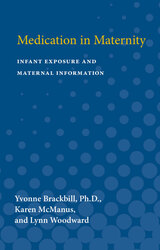3 books about Maternity

Maternity, Monstrosity, and Heroic (Im)mortality from Homer to Shakespeare
Sara Burdorff
Amsterdam University Press, 2025
This work uses an adaptation of monster theory to rethink the foundations of epic-heroic immortality. Rather than focusing on a specific monster or monsters, the author identifies the “belly-monstrous” as a crucial point of intersection between mothers and warriors in traditional narratives of the Trojan War. Identifying the gestating/digesting belly as the center of the Iliadic world, this groundbreaking approach disrupts androcentric readings of the Iliadic warrior and his ethos, emphasizing the crucial role of female suffering in the generation and preservation of immortal legacy.
The author reconsiders ancient Greek depictions of the Trojan War and its aftermath, including Homeric epic and the tragedies of Aeschylus and Euripides, and illuminates the cohesive patterning of Shakespeare’s “mother-warrior” plays, which place inherited Iliadic-belly-monstrous motifs in conversation with cultural anxieties of late Elizabethan England.
With meticulous scholarship and captivating analysis, Maternity, Monstrosity, and Heroic (Im)mortality from Homer to Shakespeare redefines the relationship between mothers and warriors in the Iliadic-heroic ideal, paving the way for new interpretations of war, grief, and immortal glory in a broad range of literary and cultural contexts.
The author reconsiders ancient Greek depictions of the Trojan War and its aftermath, including Homeric epic and the tragedies of Aeschylus and Euripides, and illuminates the cohesive patterning of Shakespeare’s “mother-warrior” plays, which place inherited Iliadic-belly-monstrous motifs in conversation with cultural anxieties of late Elizabethan England.
With meticulous scholarship and captivating analysis, Maternity, Monstrosity, and Heroic (Im)mortality from Homer to Shakespeare redefines the relationship between mothers and warriors in the Iliadic-heroic ideal, paving the way for new interpretations of war, grief, and immortal glory in a broad range of literary and cultural contexts.
[more]

Measuring Mamma's Milk
Fascism and the Medicalization of Maternity in Italy
Elizabeth Dixon Whitaker
University of Michigan Press, 2000
In Italy as in other Western societies, the medicalization of basic biological functions contributes to the loss of personal confidence in the care of the body. Measuring Mamma's Milk analyzes the medicalization of maternity through a study of breastfeeding practices over a century of changes in socioeconomic organization, family life, and health beliefs. During the pivotal interwar period in Italy, fascism changed the relationship between the state and the public and greatly tightened the state's ties with medicine and science. "Rationalized" breastfeeding was at the heart of programs to reduce infant mortality rates in order to increase the size and "quality" of the population. Highly regimented feeding schedules, still practiced today, came to represent both an eternal, natural function and the conquest of fatal maternal ignorance by modern science. They also had important consequences for fertility and for maternal and child health. Through an interdisciplinary approach, Elizabeth Whitaker shows how fascism went beneath the surface to have a lasting impact on cultural beliefs and behaviors. Measuring Mamma's Milk will appeal to readers interested in Italy, fascism, and the care of young children as well as to scholars in medical and cultural anthropology, European history, history of medicine, and women's studies. Elizabeth Dixon Whitaker received her Ph.D. in anthropology from Emory University. She is the recipient of two Fulbright grants, the second of which sent her to the University of Bologna as a Senior Scholar in 1998-99. She is currently an independent scholar living in Washington, D.C.
[more]

Medication in Maternity
Infant Exposure and Maternal Information
Yvonne Brackbill, Karen McManus, and Lynn Woodward
University of Michigan Press, 1985
Mothers often know very little about the drugs they receive during pregnancy and even less about the drugs they consume during childbirth. The adverse fetal effects of drugs—whether prescription or over-the-counter—and the information mothers receive from the drug and medical communities about those drugs are shown in this International Academy for Research in Learning Disabilities monograph. The research for the study presented in Medication in Maternity included 602 mothers, and as such must be seen as a significant contribution to the field of neonatology in general and to learning disabilities specifically. The authors' findings indicate that many infants are exposed to prenatal and during-birth drugs that could cause learning difficulties or have other toxic effects, and that mothers are rarely told what drugs they are taking or how those drugs could harm their child.
[more]
READERS
Browse our collection.
PUBLISHERS
See BiblioVault's publisher services.
STUDENT SERVICES
Files for college accessibility offices.
UChicago Accessibility Resources
home | accessibility | search | about | contact us
BiblioVault ® 2001 - 2025
The University of Chicago Press









